God’s Promise to Abraham
For what does the Scripture say? “Abraham believed God, and it was credited to him as righteousness.”
– Romans 4:3-5
Abraham believed God, and it was reckoned to him as righteousness,
and he was called the friend of God. – James 2:23
The Man Known as the Friend of God
 The Friend of God – that is quite a privileged designation, earned
The Friend of God – that is quite a privileged designation, earned ![]() by a life in close fellowship with God. Similar to that, David is said to be the “man after God’s own heart” – again, privileged words. God declared Abraham to be a “friend of God” (Isaiah 41:8), and Jesus confirmed this treasured friendship with His disciples (John 15:13-15). Sacrificial friendship, rooted in the faith relationship God had with Abraham, is brought forward to the sacrificial work of Christ on the Cross. Friendship involves sacrifice, but it is given in the safe assurance of God’s promises.
by a life in close fellowship with God. Similar to that, David is said to be the “man after God’s own heart” – again, privileged words. God declared Abraham to be a “friend of God” (Isaiah 41:8), and Jesus confirmed this treasured friendship with His disciples (John 15:13-15). Sacrificial friendship, rooted in the faith relationship God had with Abraham, is brought forward to the sacrificial work of Christ on the Cross. Friendship involves sacrifice, but it is given in the safe assurance of God’s promises.
Like the disciples, Abraham may not have grasped right away the full impact that sacrifice would have in his life once he turned his heart towards God. Not only did he “sacrifice” in leaving the luxuries of Ur, but he suffered through a nomadic life and endured the testing trial of Isaac’s sacrifice on the mountain. When we meet Abraham in Genesis 12, he was already 75 years old. We learn about his life from ages 75 to 99 from Gen. 12-20. Then, Gen. 21-24 are devoted to the birth and marriage of Isaac. Then Gen.25 a little detail of the rest of his life, then his death. What does all this tell us?
Lifelong enjoyment is not a given, and hardships and failures do come. Abraham was not perfect, but he remained the Friend of God. That seems like a noble goal for each of us – to remain faithful to the calling of God in our life, get through the struggles, not distracted by the pleasures of the world, and remain a close companion to God. That would be very good indeed. As we begin our study of Abraham, we need to be mindful of how his life lessons can benefit us so that God knows us as His friend.
Please pause here and open your Bible and read through Genesis 11-12 in one sitting before you continue on through this Bible Study.

Abraham’s Timeline and Travels
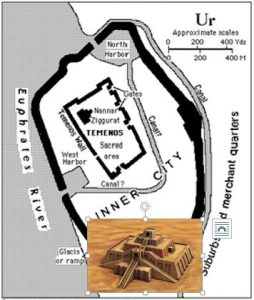 Called From Ur, Gen. 11:27-32
Called From Ur, Gen. 11:27-32
-
- The “main introduction” to Abram is Gen. 12:1, but the story actually starts at Gen. 11: 27-32 with the journey from Ur with his father Terah and family
- The first Hebrew word in Gen. 27:11 is “toledoth”, which we have noted already to be a key word in Genesis. It is used eleven times by Moses (inspired by God) to indicate major transitions in the book of Genesis – although translated “genealogy” or “generations” here, it is still the same Hebrew word. Here in Gen. 11:27, this could be seen as the major transition of the book. Genesis 1-11 covers about 1800 years, or 29% of man’s history. Gen. 12-50 covers about 300 years, a small snapshot by comparison, but with universal and eternal implications for mankind. The emphasis in Genesis as inspired by God changes to focus on His faithful followers. Genesis 12 is the “primary divide” of the book.
- Ur was a very advanced city – a relatively large society, comfortable (for that time period) homes and mansions, major buildings, libraries, etc. It was located near modern Basra in south Iraq and it was the original “big city life”. It was probably hard for Terah’s family to pack up and leave. Abraham was likely born here, around 2100BC.
- Ur was near the Euphrates River, existed as far back as 3800BC, and was likely resettled after the flood around 2300BC. It was a wicked society, obsessed with idolatry, including human sacrifice – they built the “ziggurat” temple, a marvelous tiered pyramid with 75′ high terraces, gardens (inset picture above). They worshiped the moon god amazingly named “Sin”. Ur was also a main worship center for the god “sin”.
- Abraham heard God’s call in Ur, not Haran. He left Ur behind with his father Terah, which can be seen as a reversal of eastward migration of humanity after the flood that built Babel, and ultimately developed the beginnings of Ur – now God says He will build the nation that will be “His People”.
- Additional inspired commentary is given by Stephen in Acts 7:2-8.
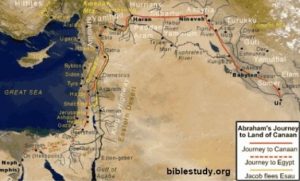 The Journey to Canaan
The Journey to Canaan
-
- The total trip from Ur began by following ancient trading routes along the Euphrates river.
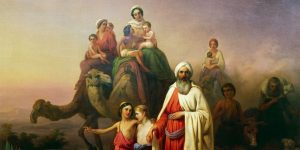 They traveled 600 miles from Ur to Haran. Then after Terah died, Abram and his family traveled another 400 miles down to Canaan. Also note Abram’s later sojourn down to Egypt because of famine (Gen. 12:10-20), which was another 300 miles round trip. Those camels were probably getting worn out.
They traveled 600 miles from Ur to Haran. Then after Terah died, Abram and his family traveled another 400 miles down to Canaan. Also note Abram’s later sojourn down to Egypt because of famine (Gen. 12:10-20), which was another 300 miles round trip. Those camels were probably getting worn out. - Abraham wasn’t perfect – his faith was weak at start and made some poor decisions, but he made himself available to learn & grow in faith. He was to be sure a man of faith in the One True God. Interesting that he lived 175 years, much shorter than compared to his ancestors.
- As quoted above, Abraham is referred to in the Bible as the “Friend of God” – James 2:23.
- This chart is a great help in our appreciating all the major events in Abraham’s life. (You can Copy & paste it into a Word document to make it larger.)
- The total trip from Ur began by following ancient trading routes along the Euphrates river.
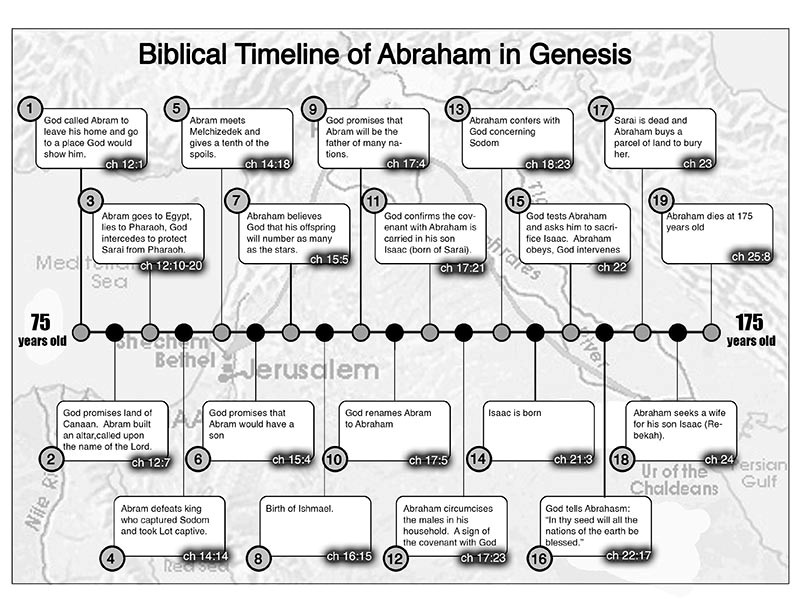
-
-
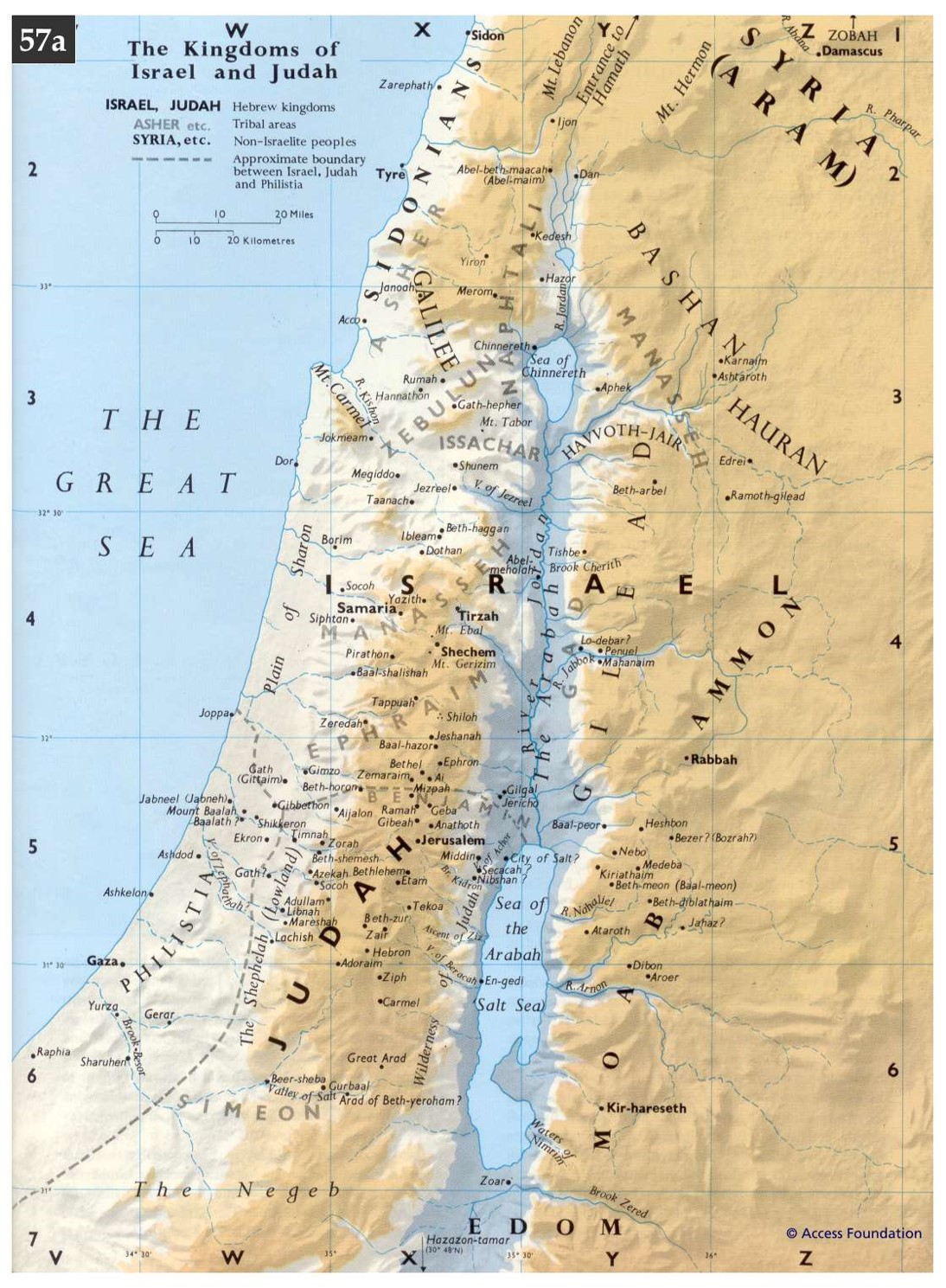 Map it! Here is a map you should print and keep handy in the back of your Bible (you might have a map like this in your Bible). How to do that? Right click on it and copy it. Then paste into a simple document, make it as large as you wish and print it.
Map it! Here is a map you should print and keep handy in the back of your Bible (you might have a map like this in your Bible). How to do that? Right click on it and copy it. Then paste into a simple document, make it as large as you wish and print it.
-
God’s Covenant Promises
-

As you dig deep into the texture of the Bible…
- You discover its foundation is built on God’s character and His promise to provide Redemption to those who place faith in Him.
- You begin to “connect the dots” between major portions of Scripture, discovering the constants, relationships and progression.
- The result of this discovery shows us…
- In Gen. 3:15, God promised to provide a Deliverer to mankind, deliverance from the sin’s penalty and restored relationship with Him
- The path of promises God established through the Bible and man’s history
- They take us from mankind’s loss in the Garden to our recovery in Redemption
- The covenant promises are like an infrastructure…
- They are given progressively by God, and He executes His plan from them.
- They are a foundation for His governance of our world.
- They also develop His Relationship with us through redemption.
- The covenants form a basis for the execution of God’s dispensations…
- A commitment to the normal/literal/historical method of Bible study(hermeneutics) is an important foundation to properly interpreting what God has told in the Scriptures. As we work to study, understand and apply the Bible, we assume that God expects us to interpret the words literally unless the passage specifically guides us to make a spiritual/allegorical interpretation. We propose that if instead we take an approach which assumes that an allegorical interpretation is appropriate if the passage doesn’t make sense to us (e.g. many prophetic passages), we would have as many different interpretations of difficult Bible passages as there are interpreters. Our perspective is based on the logic that language and the written word is meant to communicate clear and actual fact, unless the communicator specifically says he is speaking hypothetically or allegorically.
- By interpreting the Bible literally, the careful Bible student comes to view God’s ongoing relationship to man in a framework of progressive phases of time since the Creation which we refer to as as “dispensations” or “administrations” (Eph. 3:2), and the resulting relationship He exercises with man.
- Covenants & Dispensations
- Obviously, the Abrahamic Covenant looms large in Abraham’s life, as well as for the multitudes of his descendants who will follow in his footsteps. Abraham, the establishment of the Jewish people as God’s Own, and the promises that God alone will deliver impact every believer in every generation up until the judgment (of sin) and deliverance (of His people) by God are completed.
- So, as we move forward in our Genesis study, as well as our lifelong study of God’s Word, we need to have a clear understanding of what the covenants are that God has made with His people, and how those covenants reveal to us God’s developing plan of administrations or “dispensations” through man’s history as He reveals His plan for relationship with man and all of His creation. Click here to read more about this very important aspect of Bible interpretation.
The Abrahamic Covenant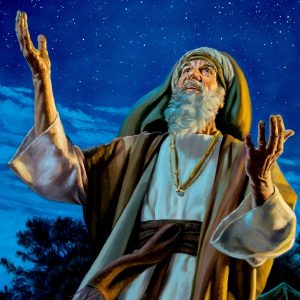
- The Abrahamic Covenant is Introduced to Abraham in Four Phases
- Gen. 12:1-3, God provides a summary Introduction of the covenant to Abraham.
- Gen. 15:18-21, God declares the covenant in full in the light of Abraham’s believing faith, and commits as Sovereign God to deliver Land, Seed and Blessing to Abraham and his descendants.
- Gen. 17:1-21, God reaffirms the covenant with Abraham and establishes circumcision as the outward sign of the Jew’s possession of God’s promise.
- The Covenant is renewed with Isaac, 26:2-5, and with Jacob, 28:10-17.
![]() Bible Study Journal
Bible Study Journal
Get your Bible Study Journal out and spend some time looking at each of the above five passages to see how the Abrahamic Covenant is elaborated, expanded and explained.
- It is an Everlasting Covenant
- Gen. 17:7-9; 1 Chron. 16:17; Psa.105:7-12; Isa.24:5
- This is God’s promise of national blessing to Israel
- It is a promise that will never end, to be fulfilled literally at the Second Coming of the Messiah
- It is also ultimately an Unconditional Covenant – for salvation and kingdom
- Gen.17:12ff, God makes a unilateral promise/agreement that He alone will accomplish
- It is irrevocable and eternal
- The Basic Elements of the Covenant
- Land – Abraham and his progeny would end up possessing all the land from the Nile (actually the Brook of Egypt in north Egypt) to the Euphrates
- Seed – Abraham’s family line would produce the Messiah/Savior
- Blessing – the blessing of redemption will be opened to all mankind with the sure hope of eternity in God’s presence
- The Importance of the Abrahamic Covenant for all Time
- Not just the basis for God’s blessings for Jews, but the basis for God’s blessings for men of every nation and every time period
- Rom. 2:28-29; 4:1-17; Gal. 3:15-16, 29
![]() Bible Study Journal
Bible Study Journal
-
- List two OT passages where Abrahamic Covenant promises are mentioned.
- List two NT passages where Abrahamic Covenant promises are mentioned.
- Considering the mistake Abram made in Gen. 12:11-13, how was God still able to bless him?
- To what extent do you think Abraham understood the scope of the promises God gave him in Gen. 12:1-3?
- How does God’s promises in the Abrahamic Covenant fit into His eternal plan to provide salvation for all people?
- From the orange Dispensations chart, look up the reference for each dispensation and write you own description for each from the passage.
- Summary of Abraham’s life: Read Gen. 12-22 and for each chapter, write a 2-3 sentence summary.





